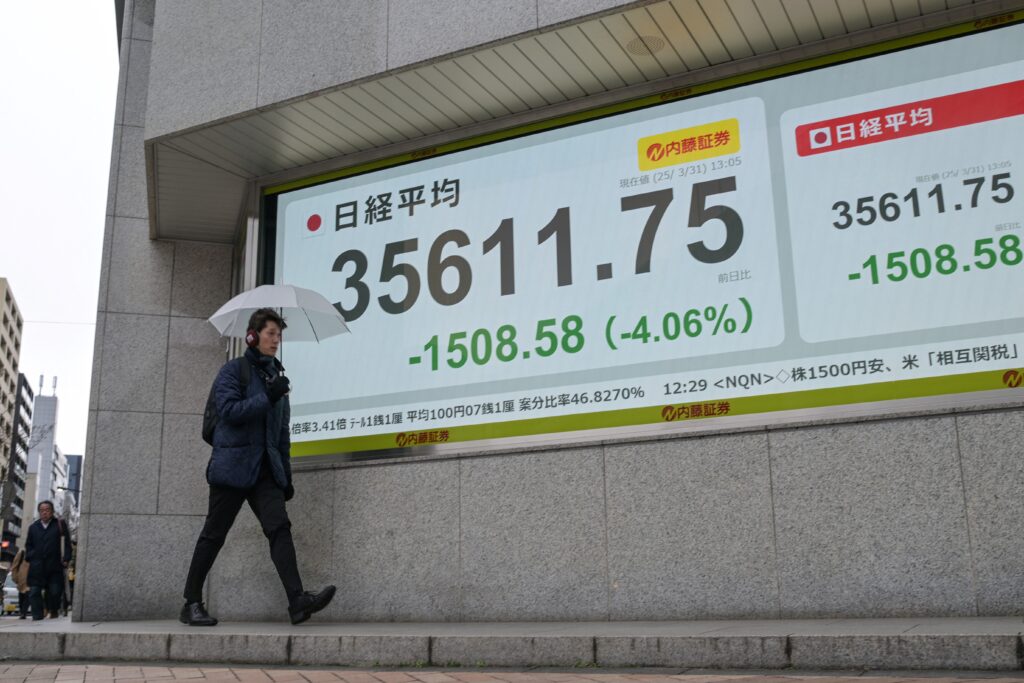
- ARAB NEWS
- 16 Jul 2025

TOKYO: Japanese government bond investors are bracing for a potential power shift in upper house elections this weekend that could strain the country’s already frail finances, with long-dated yields soaring to all-time highs as the vote nears.
Prime Minister ISHIBA Shigeru’s sliding popularity suggests even his modest goal of retaining a majority is unachievable, with a new opinion poll from national broadcaster NHK handing the ruling Liberal Democratic Party its lowest score since its return to power in 2012.
Defeat in Sunday’s vote could bring anything from a shift in the composition of the coalition to Ishiba’s resignation, though even the least disruptive scenario is still expected to see more stimulus-minded political viewpoints gain sway.
All three of the leading opposition parties espouse some form of consumption tax cuts, with the rapidly emerging populist, right-wing Sanseito party proposing a phasing out of VAT altogether. Meanwhile, one of Ishiba’s main rivals for leadership of the LDP is reflationist TAKAICHI Sanae.
The 30-year JGB yield jumped to a record 3.195% on Tuesday, while the 20-year yield soared to the highest since November 1999 at 2.65% and the 10-year yield climbed to the highest since October 2008 at 1.595%.
“As the noise towards yet more fiscal spending picks up, we have increased our underweight in Japan as a whole,” said Ales Koutny, head of international rates at Vanguard.
“Japan is going down a similar path as the UK did a couple of years ago,” Koutny said. “If no fiscal restraint, then the bond market will start to put pressure on the economy.”
Japan’s debt burden is the highest in the developed world at about 250% of GDP.
Concerns about promises of fiscal largesse from opposition parties helped fuel a sell-off in so-called super-long JGB yields in late May, sending 30-year yields to then-record peaks at 3.185% and 40-year yields to an unprecedented 3.675%. The 40-year bond had yet to trade as of 0325 GMT on Tuesday.
The Ministry of Finance was able to restore some calm to the market with plans to reduce issuance of 20-, 30- and 40-year bonds to address a supply-demand imbalance for those tenors, after traditional demand from life insurers dropped sharply this year.
Finance Minister KATO Katsunobu said on Tuesday he is monitoring the market situation closely and will continue to work on appropriate debt management to maintain investor confidence.
Meanwhile, the Bank of Japan’s reticence to raise interest rates further against an uncertain global economic backdrop has also encouraged investors to stay sidelined.
“If such a demand-less market continues and investors foresee no rate hikes within this fiscal year, JGB volatility will go up, especially in the long end,” said Kentaro Hatono, a fund manager at Asset Management One, who says he’s adopting a “wait-and-see” stance due to the risks of the yield curve steepening after the election outcome.
Barclays calculates that the rise in 30-year yields currently factors in about a three percentage-point cut to Japan’s 10% consumption tax rate.
“Even if the ruling parties retain their majority in the upper house, they would still be unable to pass budget bills, including the upcoming supplementary budget, without the cooperation of the opposition parties,” the bank’s Japan-based analysts wrote in a research note.
“In this context, we believe there will likely be a convergence toward an expansionary budget proposal.”
Consumption tax cuts have been gaining sway with the public: a recent poll by the Asahi newspaper showed 68% of voters thought a sales tax cut was the best way to cushion the blow from rising living costs.
Fiscally hawkish Ishiba has eschewed that option in favour of cash handouts.
A poor election result for the ruling coalition will trigger a sell-off in super-long JGBs by so-called real money investors, including life insurers and institutional investors, predicts Toshinobu Chiba, a fund manager at Simplex Asset Management.
“If the opposition parties win, the government deficit will see a huge expansion,” Chiba said. “The JGB yield curve will steepen by a lot.”
Reuters